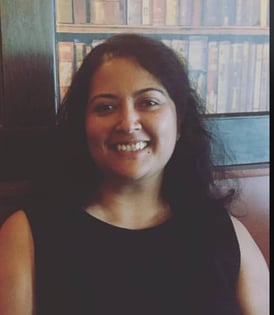Cytel & ARCS Collaborate to Strengthen Early Phase Capabilities

A combination of industry and policy forces have recently changed the shape of Australia’s R&D sector, making it a prime location for Asian, European and North American companies seeking to complete first-in-human and early phase clinical trials. While such policies are attracting foreign talent and investment, a question arises as to how to facilitate the rapid strengthening of Australian capabilities in adaptive, group sequential and Bayesian designs, which would be necessary to ensure the efficiency of such early phase trials.
As an extension of its growth into Asia, Cytel is pioneering efforts to help close the biometrics skills and services gap in Australia by working with local clinicians to support the design and implementation of more complex early phase clinical trials. As a first step in this process, Cytel scientists are now members of ARCS, the Association of Regulatory and Clinical Scientists to the Australian Pharmaceutical Industry, and will be attending this year’s ARCS conference in May 2022.
Adaptive and Bayesian Designs in Early Phase Development
According to James Matcham, VP of Strategic Consulting at Cytel, adaptations in early phase trial design are equipped to handle questions regarding dosage, patient population, safety and confirmatory efficacy. In 2022 James designed a Bayesian Basket study to help an Asian biotech find the optimal indication for a new medicine, shaving months off of the clinical development process.
Writes James, “In early-phase trials the maximum use of the accumulating data in near-real time is paramount.” [1]
Oncology
Oncology is one of the critical areas where early phase sponsors in Australia will benefit from strengthened capabilities in adaptive design. The PKPD models that guide dose-selection for oncology undoubtedly benefit from Bayesian methods, as well as basket and umbrella studies to quickly identify appropriate indications and subpopulations for further study.
Rare Diseases
Rare disease trials have the additional limitation that patient scarcity needs to be managed carefully. James’s cites the benefits of partnering with Cytel colleagues accomplished in designing single arm or external control arm studies [2], as well as using historical data to augment the findings of smaller RCTs.
To learn about how Cytel can contribute to close the biometric gap in Australia, read James’ article in the ARCS magazine here:
References:
[1] Closing the Biometrics and Skills Gap in Australia
[2] Demystifying Synthetic Control Arms
About the Author of Blog:

Dr. Esha Senchaudhuri is a research and communications specialist, committed to helping scholars and scientists translate their research findings to public and private sector executives. At Cytel Esha leads content strategy and content production across the company's five business units. She received a doctorate from the London School of Economics in philosophy, and is a former early-career policy fellow of the American Academy of Arts and Sciences. She has taught medical ethics at the Harvard School of Public Health (TH Chan School), and sits on the Steering Committee of the Society for Women in Philosophy's Eastern Division, which is responsible for awarding the Distinguished Woman in Philosophy Award.


